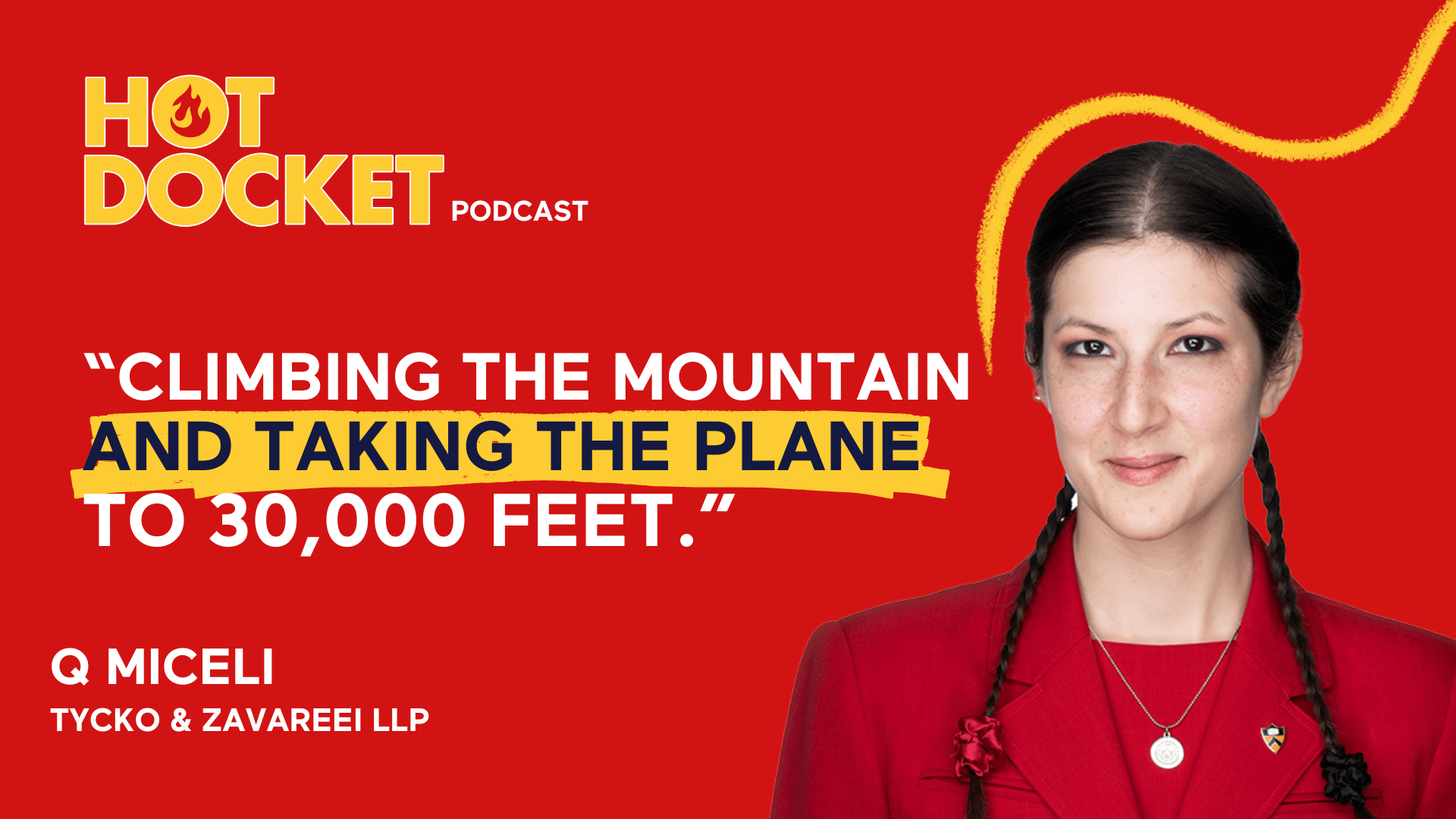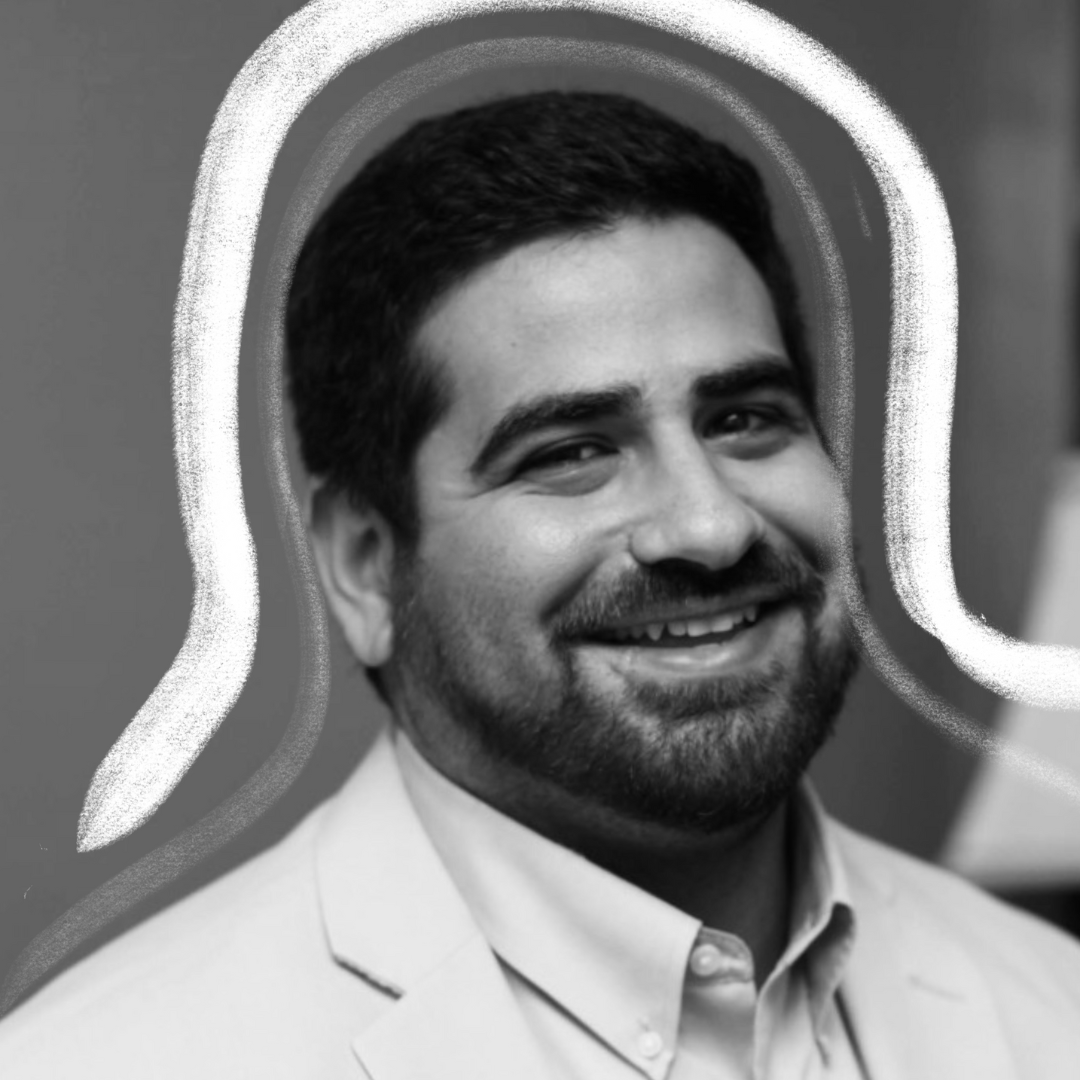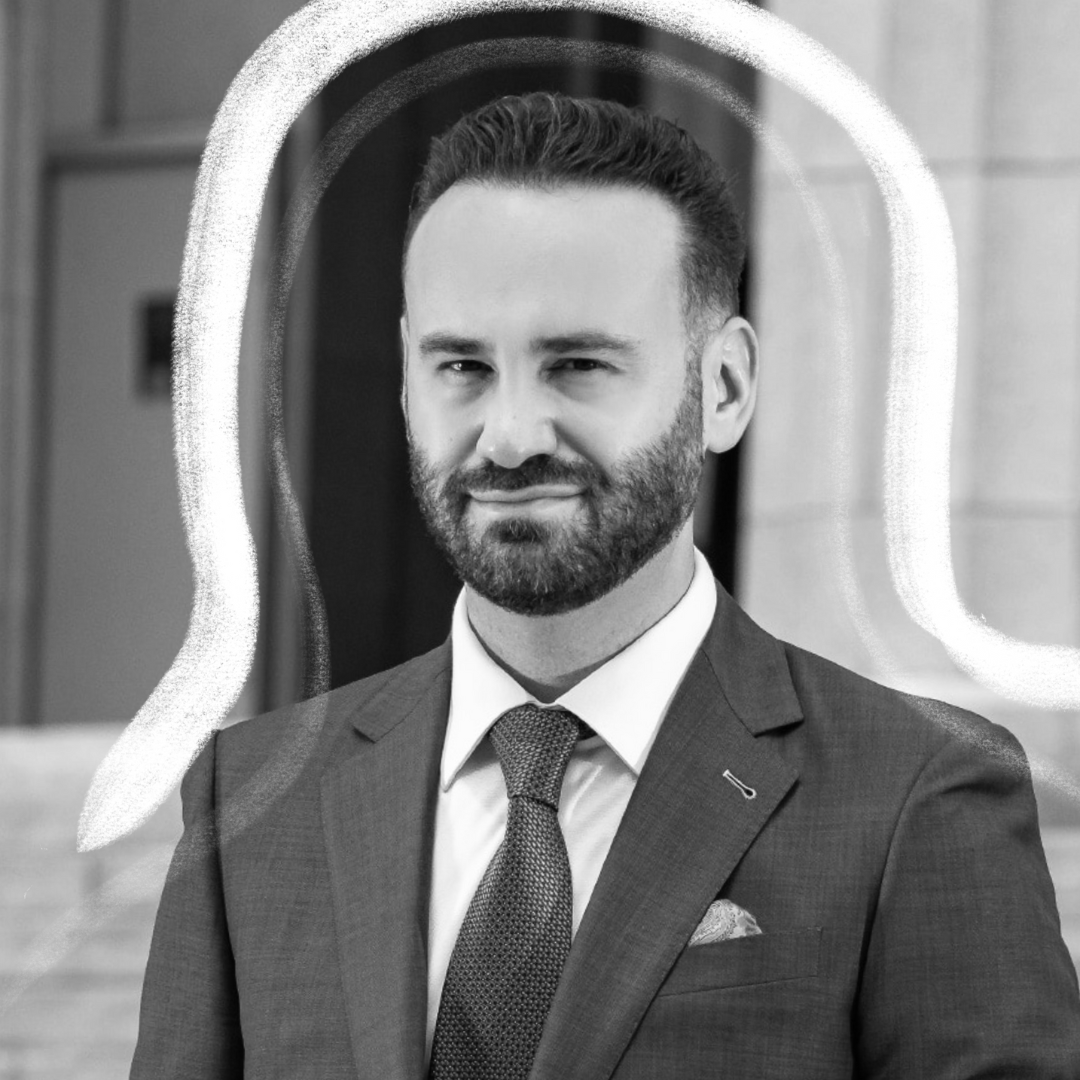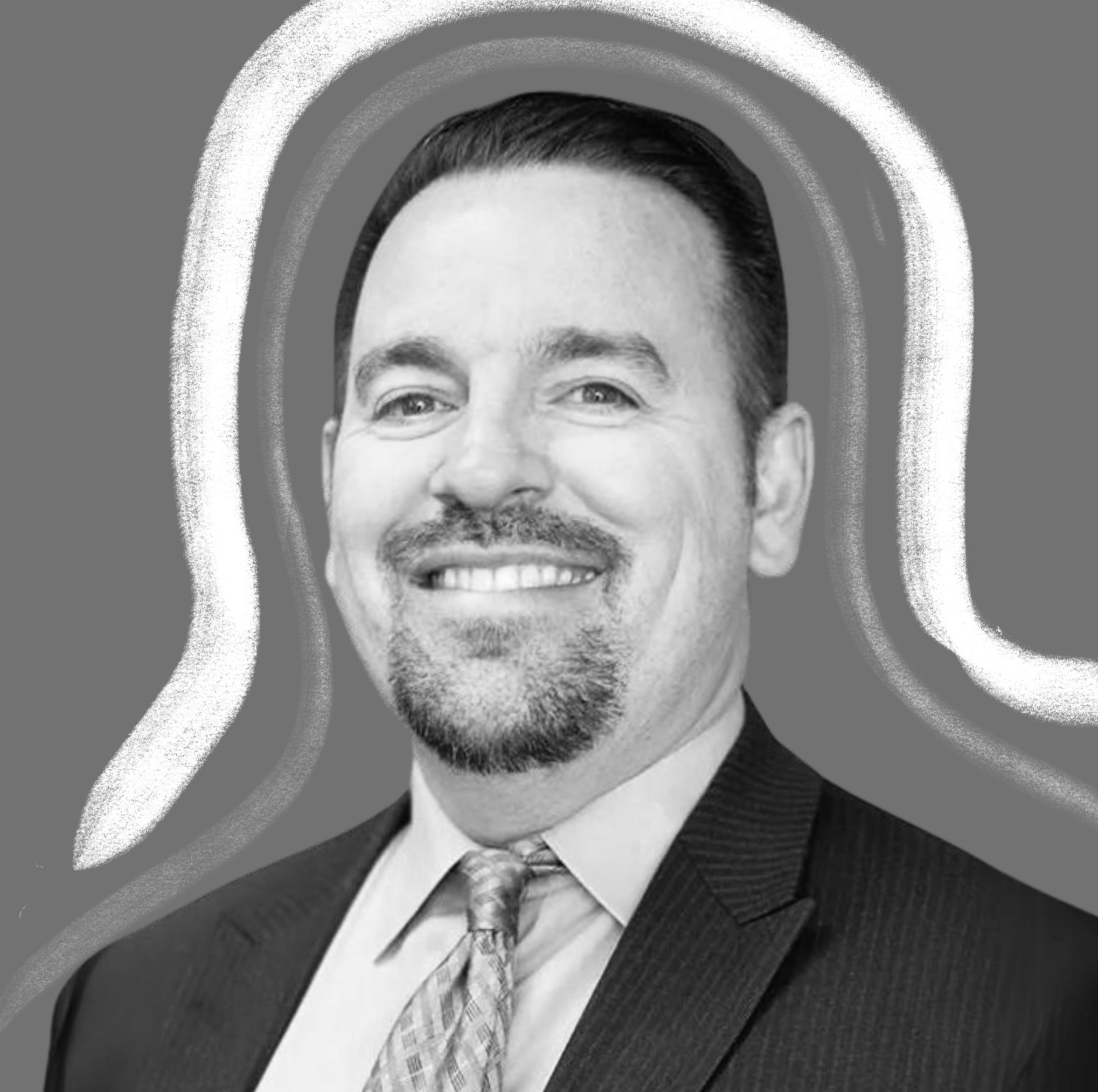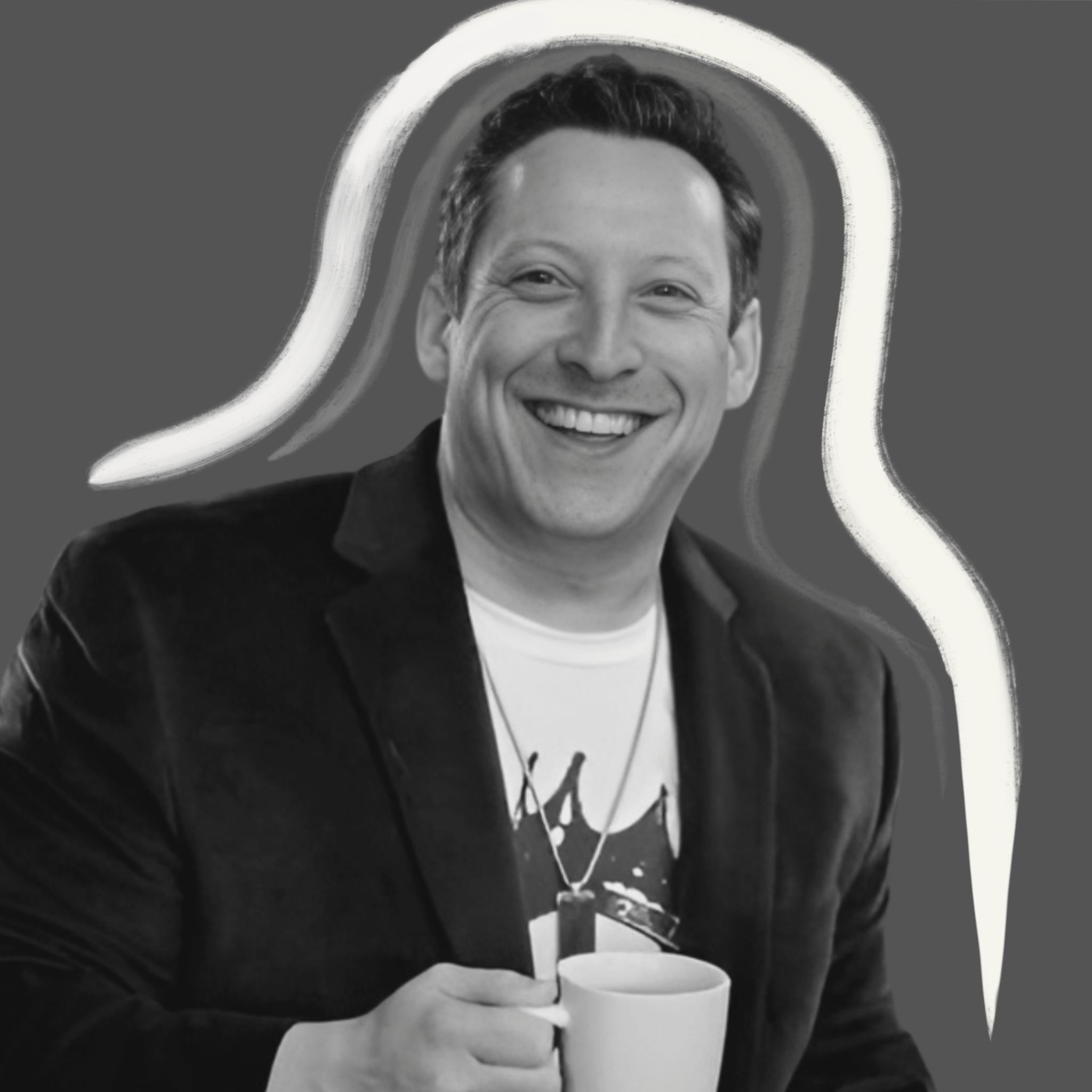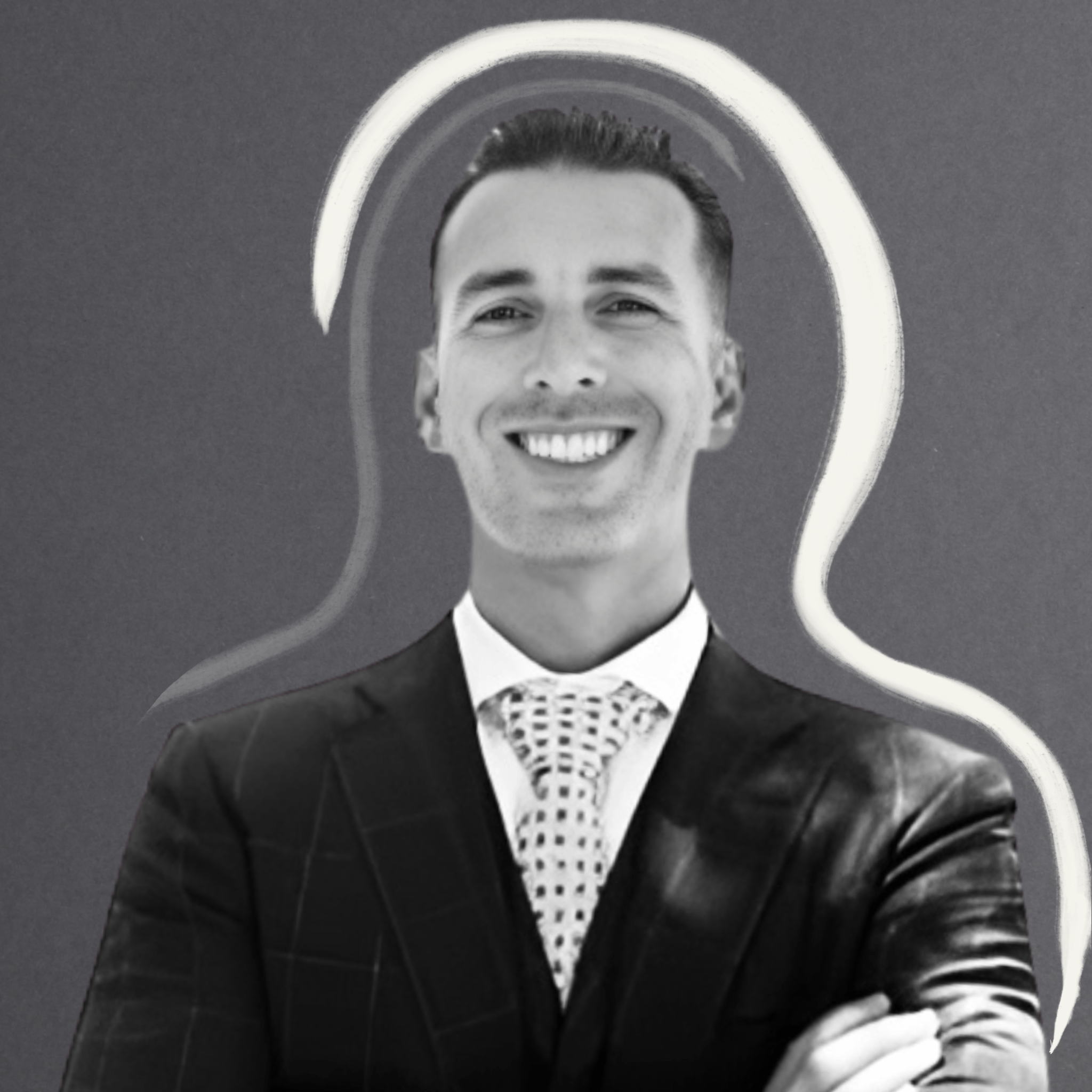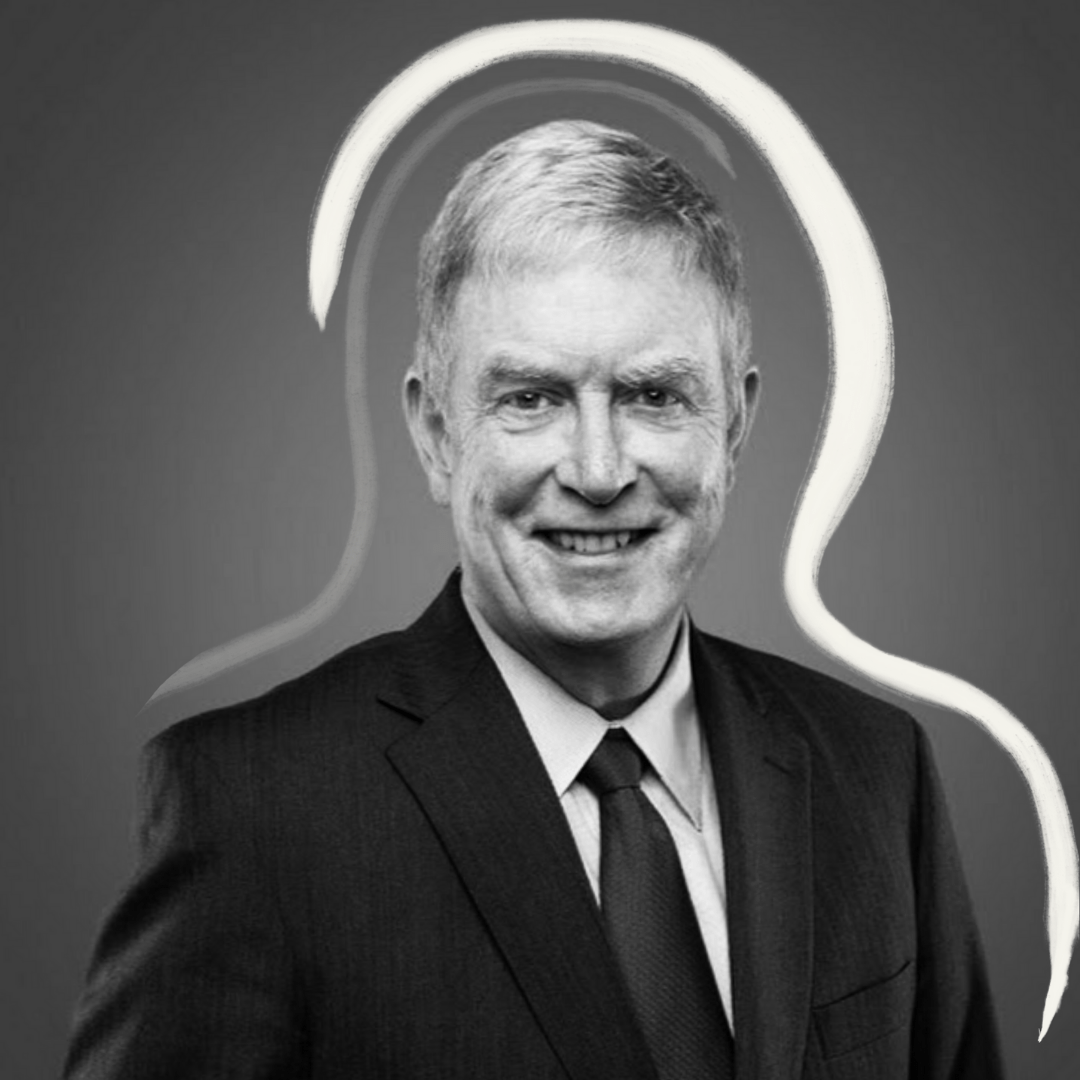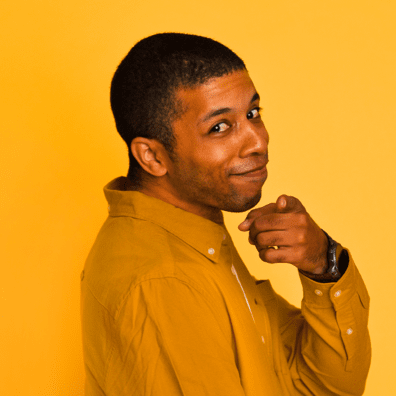00:00:00] Bobby Steinbach
GIF or GIF? GIF. GIF. We’re just
[00:00:06] Q Miceli
going to have to agree to disagree here.
[00:00:08] Bobby Steinbach
Different, different wavelengths right now. Welcome to Hot Docket, the show where we talk about winning marketing strategies that have built the most successful law firms.
[00:00:15] Andrew Nasrinpay
Join us every two weeks for the latest trends and tactics to grow your law firm.
[00:00:20] Bobby Steinbach
Hey everybody. Today I’m here with Q Miceli, the director of marketing and communications at Tycko and Zavareei, a whistleblower and class action law firm.
[00:00:33] Bobby Steinbach
Hi Q. Thanks for joining.
[00:00:35] Q Miceli
Hey, Bobby. Hey, Andrew. Thanks for having me on.
[00:00:38] Bobby Steinbach
Of course. So, I, I think it’d be great if you could start by just giving a little bit about yourself and how you got involved in legal marketing of all things.
[00:00:45] Q Miceli
So, my name is Q. I’m the Director of Marketing for Tico Zbari, plaintiff side firm representing whistleblowers and consumers in class actions.
[00:00:54] Q Miceli
Uh, my legal marketing origin story, prior to this job, I was the marketing and wellness person for an insurance brokerage. And that insurance brokerage was also spinning off another company at the same time. So there were days where I was speaking to two different employment law attorneys, an intellectual property attorney, and I was also going through a divorce and speaking to my divorce attorney.
[00:01:19] Q Miceli
And to me, lawyers were like superheroes in that situation. I thought, huh, maybe I should do something new. So this is also 2020 and the pandemic. And with that inflection point of everything being shut down and going through my divorce, I thought it’s time for a career change. But I still needed to use my existing skills as a marketer to move to the next thing.
[00:01:43] Q Miceli
Also, like many people who work in legal, I thought, oh, maybe I should go to law school. But I don’t want to just jump into that. I wanna see up close and personal. Um, what happens when you go to law school? I’ve since decided I do not wanna go to law school for the record, and I still think attorneys are great.
[00:01:59] Q Miceli
Um, but uh, yeah, after my divorce is final, I applied to law firms up and down l and K Streets in dc. And one of those firms was Tico Zavarri. So they interviewed me, we hit it off and it has definitely been the, the right choice in terms of working at a really progressive firm that’s doing great work for good people.
[00:02:22] Bobby Steinbach
That’s amazing. That’s a great origin story. Like, what would you say the way you got into legal marketing was? Why’d you get
[00:02:28] Andrew Nasrinpay
started? Yeah, so when we got into it, we were on the e com side where everything was very cut and dry. You spent your money at the beginning of the day, you either had sales come in or didn’t, so you could calculate your return on ad spend.
[00:02:43] Andrew Nasrinpay
We got into legal as contractors at first. We were working with personal injury firms, and then eventually Uh, we went in house with Morgan Morgan and we spent about three and a half years there. Um, where we really dug really deep into lead generation and everything that is encompassing on that side where it’s not as clear what you got.
[00:03:07] Andrew Nasrinpay
So the leads come in today. The cases may not even be signed for a few years and all of the struggles that come along with that made it very different. So it kind of tees up my next question. I want to know about what are some of the difficulties of being in house as a marketing director at a law firm.
[00:03:26] Q Miceli
Well, I can’t be everything to everyone all the time. That is [00:03:30] probably the number one issue. And I find that if something is a non legal task or skill, then attorneys will come to me. And it’s like, just because I am not you, doesn’t mean I can do everything you can. And I mean, knowing my own limitations is important.
[00:03:45] Q Miceli
And that’s also why, uh, shameless plug for Mean Pug, having a vendor sidekick that can fill all those skill gaps is so important. So, I’m in house doing operational things day to day, but when I want to dream big, I know that I need to reach out to my, my network and my members.
[00:04:02] Andrew Nasrinpay
Yeah, I think it’s interesting where when attorneys think about marketing or operations, they sometimes think one person has every skill set where you may do the content writing, the PPC, the Facebook ads, the software development.
[00:04:18] Andrew Nasrinpay
There are literally dozens of skill sets that in a lot of situations require specialists. But sometimes when you don’t do those things on a day to day, it’s not something you think of. You think you need a marketing person and that usually falls on, on the shoulders of whoever’s in house and oftentimes they need help.
[00:04:37] Bobby Steinbach
It’s great when you have a marketing coordinator in house who isn’t an attorney, who can like be that voice of the marketing side of the firm, who has the firm’s best interest at heart on the marketing side. Like you’re just able to understand things that, you know, um, A partner, as necessary as associates and everybody at a firm is, obviously, they might just not have that skill set that you do and can act as that, like, really solid project manager.
[00:05:04] Q Miceli
Yes, exactly. And also in working for a plaintiff side firm, it’s helpful to be able to bridge the gap between attorneys and the very normal, regular people that we represent. as plaintiffs. If I may brag, uh, personally, I think I’m well suited to this. I, my undergraduate is from Princeton University, so I can hang with highly educated attorneys, but I’m also, I know I’m also a consumer, and I spend a fair amount of time on Facebook and Instagram, and I’m going to analyze the ads that I see.
[00:05:36] Q Miceli
Uh, and then analyze the data that we’re getting in Facebook or, or other ad platforms to translate what the attorneys say, um, as legally as into what regular people are, are going to interact with. I
[00:05:50] Bobby Steinbach
think that’s actually an amazing segue into my next question here, which is what do you think some of the hardest things about advertising for like a quote [00:06:00] unquote weird case type like Key Tom is?
[00:06:03] Q Miceli
Like whistleblowers, uh, education is huge. People, I think, intuitively, just broad strokes, intuitively understand what fraud is, and they understand when they think a company is getting over on the government, uh, or when their employer is doing something shady with government money. But they don’t necessarily understand what the next step is with that.
[00:06:27] Q Miceli
They might think about press or going to a reporter, but probably most people don’t realize that with the False Claims Act and other whistleblower statutes, you can be rewarded for, uh, blowing the whistle. It’s not an easy road. We know that these cases have really long life cycles, but there’s money in it, in being part of compliance and enforcement efforts.
[00:06:50] Andrew Nasrinpay
So it brings up an important and interesting question around the awareness level of consumers with different types of lawsuits. So everyone is going to understand like asbestos litigation or car accident cases because they see advertisements for it nonstop because it is a common case type or divorce.
[00:07:10] Andrew Nasrinpay
So these are case types where consumers will understand they need a divorce attorney. For a case type, a lot of people don’t even know, uh, you have a case. Can you tell us a little bit more about the, like, education [00:07:30] versus direct response sales sort of marketing that you can do?
[00:07:35] Q Miceli
Sure. So for education, I am a huge fan of Marcus Sheridan’s, They Ask, You Answer.
[00:07:42] Q Miceli
Um, and answering the, to sum that up, that’s answering the questions that people are asking online in a transparent and honest way. There are definitely, we can use keyword research tools to figure out the questions that people are typing into Google about whistleblower related topics or healthcare fraud, um, or other different types of fraud.
[00:08:05] Q Miceli
And then. We can use that to inform our content strategy. And also our ad strategy too, to try to answer those questions without giving free legal advice. And also, we’ll pull in recent news articles as like an illustration, even if it’s not our case, it’s still an illustration of like, this is a situation of this type of fraud, and under the False Claims Act, if somebody had been a whistleblower here, they could have earned this amount of money.
[00:08:32] Q Miceli
Um, or this is how this case would have gone. So, uh, education based on the questions that people are asking is, is how we go about that.
[00:08:42] Bobby Steinbach
That, uh, Marcus Sheridan book, we’ll definitely make sure to link that in the comments because that sounds like a great resource. Are there any other books that you think are like, Must haves for a marketer?
[00:08:52] Q Miceli
That’s a good question. So one of the, uh, required reading books at TZ for attorneys, and then I [00:09:00] said, Hey, I’d like to read that too, is Typography for Lawyers by Matthew Butterick. Um, as someone who’s not, I’m not a graphic designer. I’m much more of a writer than a visual person. It was eye opening to me.
[00:09:14] Q Miceli
to learn more about how the literal words that we see on screens or on printed mediums, um, land with us and the psychology behind that and why certain fonts are just better to use than others. I’m not so concerned about fitting a certain number of words on a page that gets printed in the way that attorneys are, but.
[00:09:35] Q Miceli
reading that book definitely opened my eyes to the font choices that I’m going to make for, for online things or for our social media.
[00:09:42] Bobby Steinbach
You talked earlier about being an in house marketer at a firm and what that means, what some of the challenges could be, what would make your life easier? How can attorneys make your job as a marketer easier?
[00:09:55] Q Miceli
I’ve been trying to implement this at the firm, um, since I was the first in house marketer that TC has ever had. I, there were no processes to start with. So I’ve definitely been building them over the last couple of years. And one of the core parts of that is when attorneys have a project trying to get as much of the scope up front as possible, being like the agency inside the firm, because any marketing agency I’ve ever worked with has been very clear about like, this is the scope of the project.
[00:10:27] Q Miceli
It’s not going to exceed this. Sometimes attorneys have really great case ideas, but then they can’t come down from the 30, 000 foot view into You know, how do we, how do we climb that mountain and then take a plane from there to get up to 30, 000 feet? Um, yeah, what would be helpful as a legal marketer from attorneys is having the who, what, where, when, why up front.
[00:10:49] Q Miceli
It definitely eliminates a lot of back and forth about ad campaigns or blogs or other things. I get it that it’s, you know, my job to come up with the steps in between sometimes, but [00:11:00] I’m also not an attorney. So. Knowing the case law doesn’t necessarily mean I’m going to know how to get from A to B. Yeah, I think
[00:11:09] Bobby Steinbach
as marketers and as people, a lot of times you want to just like get started, but taking the time to scope and think about how much is going to go into a process is so vital and it’s like something you only learn from dealing with the fallout of not doing it.
[00:11:24] Bobby Steinbach
Yes.
[00:11:25] Andrew Nasrinpay
So I feel like a big part of learning and getting better at things is making mistakes. Do you have any sort of horror stories or good or bad examples you can give to someone who’s new to the space, whether that be an attorney who’s advertising for new cases or looking to do marketing to get more cases or for someone who’s going in house as a marketer for a law firm.
[00:11:48] Andrew Nasrinpay
If you could jump back a couple years and give folks, um, like a, I wish I knew this, what advice would you give there or just a story? on some things that may have gone wrong.
[00:12:01] Q Miceli
So one of the best pieces of advice I’ve ever seen about content, and it was in the context of email marketing, but I think it applies to blogs and ads as well.
[00:12:12] Q Miceli
Things you see and read is write, The content that your audience wants to read, not that you want to share. As a legal marketer, you can fight many battles over this. It is definitely not, you say this once and people will believe you forever. Um, but the more you say it and the more you produce results related to doing this and making the content that your customers want to read, um, you know, the more leads you will, you will get and the more you will prove your point.
[00:12:42] Q Miceli
Um, because, uh, attorneys are used to being the smartest people in the room and used to people listening to them. But we know that that’s not necessarily how advertising works. People type their inquiries into Google because they want the answer to their question, not what [00:13:00] you want to say. So having the, the grace to be able to say, well, this is what our clients or potential clients want to hear.
[00:13:08] Q Miceli
And this is what we should try to answer for them is a strategy that will, that will pay dividends.
[00:13:14] Bobby Steinbach
Yeah, I think that’s a great point. And like, that’s why we have data to back our assumptions, right? Exactly. That’s why you do keyword research. That’s why you have tools like SEMrush and Ahrefs is so that you don’t rely on your assumptions, you’re relying on traffic.[00:13:30]
[00:13:30] Q Miceli
You say it’s A H R E F S or is it A T R E F
[00:13:32] Bobby Steinbach
A H R E F S. A H R E F S. Jif or Gif? Gif. Jif.
[00:13:39] Q Miceli
We’re just going to have to agree to disagree here.
[00:13:40] Bobby Steinbach
Different, different wavelengths right now.
[00:13:47] Bobby Steinbach
We’re going to end here with a little game that I pulled together. We’re going to go back and forth, me and Andrew. But I’m going to start a sentence, you’re going to finish it. Okay? Mad Libs. Yep. Uh, no, Mad Libs is little blanks, no? Okay. Close enough. All right. First one. If I were an animal, I would be a cat because,
[00:14:09] Q Miceli
because I only like certain people.
[00:14:12] Bobby Steinbach
That’s
[00:14:13] Andrew Nasrinpay
a good one. My last meal would be:
[00:14:16] Q Miceli
sweet 27 in Baltimore.
[00:14:18] Bobby Steinbach
What is that? What type of
[00:14:20] Q Miceli
food? It’s an Indian restaurant and gluten free bakery. Both are the things that I love.
[00:14:26] Bobby Steinbach
That’s a great like fusion. If I weren’t a marketer, I would be a.
[00:14:31] Q Miceli
Novelist, because I like telling stories other way.
[00:14:34] Andrew Nasrinpay
When I wake up in the morning, I’m most excited about
[00:14:37] Q Miceli
My yoga routine.
[00:14:39] Q Miceli
And
[00:14:39] Bobby Steinbach
with that, with the yoga routine, thanks Q for joining us. We had a really great time getting to chat with you and as always, good to see you.
[00:14:47] Q Miceli
Yeah. Thank you so much, Andrew and Bobby.
[00:14:50] Bobby Steinbach
Of course. We hope you’ve enjoyed this episode of Hot Docket. We’re your hosts, Bobby and Andrew, founders of Mean Pug, the marketing agency for ambitious law firms.
[00:14:59] Andrew Nasrinpay
Have questions about marketing or anything we covered today? Email us at bark at meanpug.com. Be sure to subscribe to learn more.
